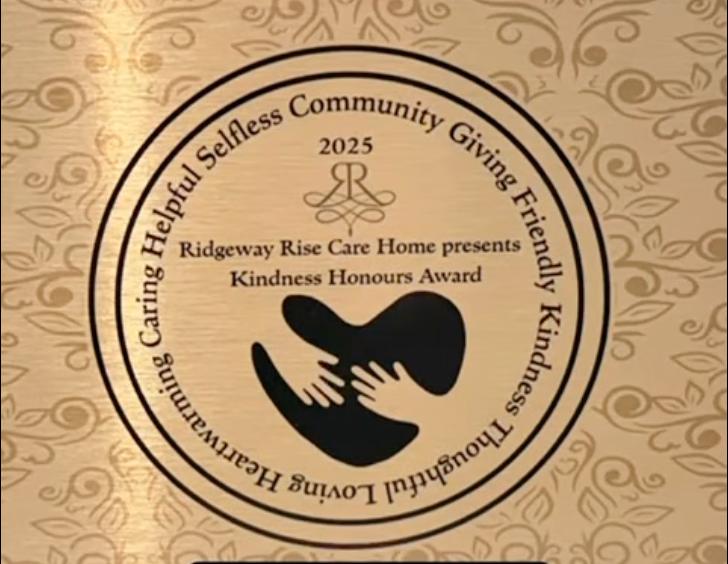How Can Care Homes Support Dementia Residents in the Cold Weather?
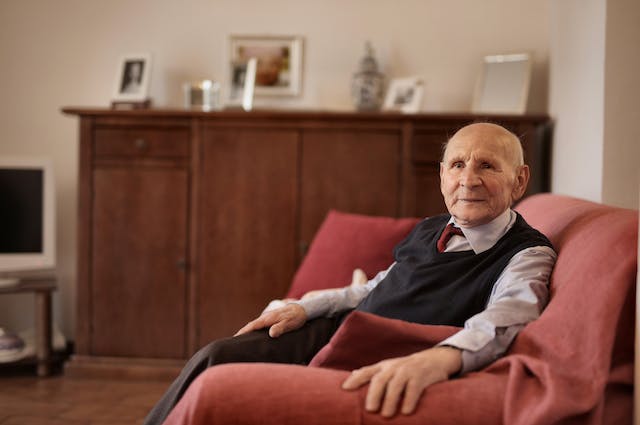
Winter can be challenging for people with dementia. As temperatures drop, the risks associated with cold weather, such as slips, falls, and difficulty keeping warm, become more significant. For a person with dementia, these challenges are often heightened by their symptoms including memory loss, communication difficulties, and changes in mental capacity.
Care homes provide the appropriate support to ensure residents stay warm, safe, and engaged during the colder months. A dedicated team of carers works to maintain a comfortable environment, offering emotional support, personal care, and meaningful activities that help people with dementia feel safe and valued. In this blog, we explore some key ways that you can continue to provide exceptional dementia care, even when the temperature drops.
Keeping Residents Warm and Comfortable
One of the biggest concerns in cold weather is making sure residents stay warm. Somebody living with dementia could forget to wear warm clothing, be unable to recognise the outside temperature or struggle to communicate when they feel cold. Care homes ensure that residents are dressed appropriately, with layers that can be adjusted throughout the day. Soft, warm fabrics and easy-to-fast clothing make it easier for residents to stay comfortable.
Maintaining a warm indoor temperature is also essential. Residing in a care home can ensure that they don't have to worry about setting their heating, residents can enjoy it at a comfortable level and have access to ample blankets and warm drinks. It is important to ensure those receiving specialist dementia care or are in further stages of dementia stay warm but don't drink too much caffeine as it can cause them to need the toilet more, which can increase the risk of falls.
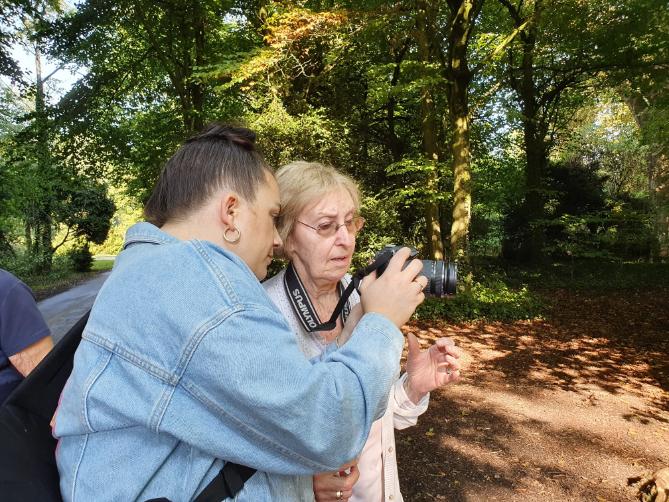
Encouraging Good Nutrition and Hydration
Eating properly is essential for keeping warm and staying healthy in winter. People with dementia may forget to eat or lose interest in food, which can lead to a drop in energy levels. Care home teams provide three nutritious, warming meals a day that support overall health, including soups, stews, and hot meals that are easy to eat.
Drinking enough fluids is equally important, even in the colder months. Regular hot drinks not only help keep residents warm but also support hydration which can improve their overall well-being. A professional care team monitors food and drink intake and ensures that every resident gets the nutrition they need to maintain their strength.
Supporting Everyday Tasks and Personal Care
Personal hygiene can become more difficult in winter, especially for someone living with dementia. The colder months can make managing tasks such as washing and dressing harder, leading to an increased need for personal care. A dedicated team of carers provides gentle support and helps residents with everyday tasks while ensuring they feel safe and dignified.
For people in the early stages of dementia, maintaining independence is important. Carers are on hand 24/7 to provide encouragement and assistance where it is needed but they also ensure residents keep their identity and a sense of purpose.
Reducing the Risk of Falls and Injuries
Cold weather brings added risks, especially for people with dementia. Icy paths, trip hazards, and cold-related stiffness can increase the likelihood of falls. Care homes ensure that outdoor areas are well-maintained and free from ice which reduces the risk of accidents. Indoors, carers keep an eye on residents to make sure they are wearing proper footwear and that their living spaces remain safe and clutter-free.
For those who enjoy spending time outside, short walks in familiar surroundings are brilliant during all times of the year. However, carers will always take extra precautions to ensure that residents are properly dressed and supported to stay safe in colder temperatures.
Offering Emotional Support and Social Connection
Winter can lead to heightened feelings of loneliness or confusion, particularly for people with dementia who may already experience social isolation. A warm and welcoming environment in a care home helps to support existing relationships and encourage meaningful interactions with family, friends, and carers.
Family members are always invited to visit, which allows residents to stay connected to loved ones. Many care homes also offer regular calls or video chats for those who may not be able to visit in person as they understand the importance of keeping in touch with those closest to you. Engaging in social activities, such as music sessions, arts and crafts, gardening and group conversations helps residents feel involved and maintain a sense of purpose while combatting the cold weather.
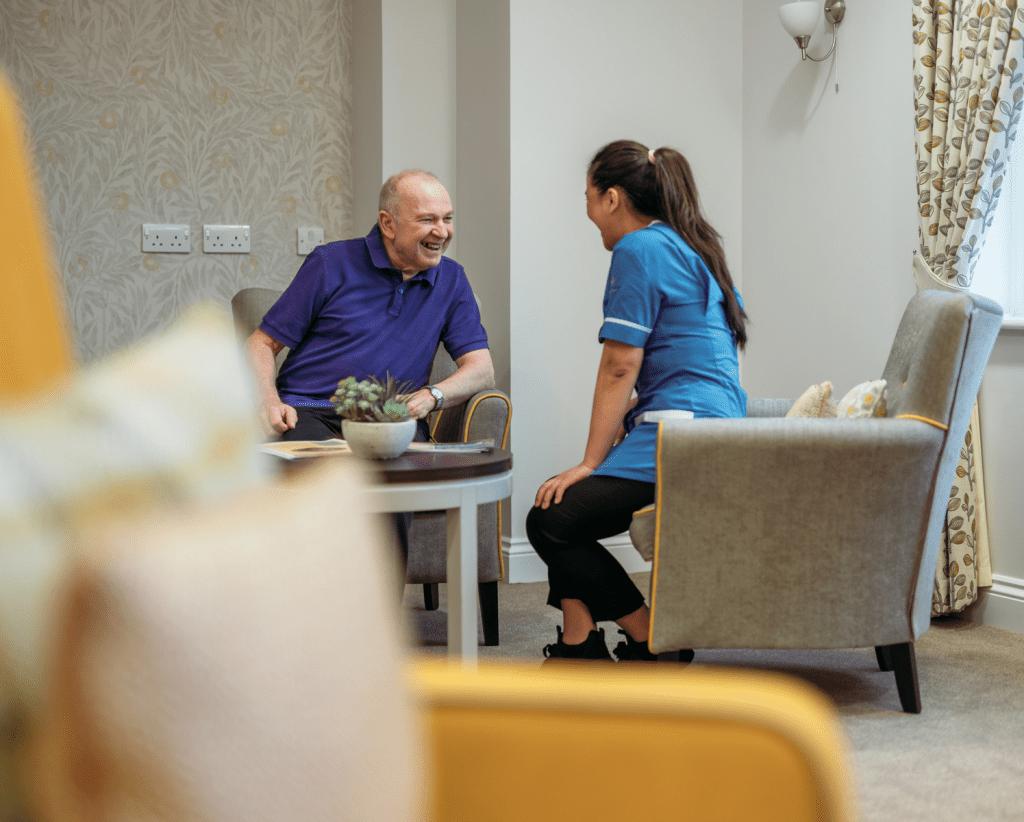
Staying Active and Engaged
Physical activity is essential for maintaining energy levels and overall health. While winter can make it more difficult to stay active, care homes will still provide opportunities for gentle exercise. This could include chair-based exercises, stretching routines, or short walks around the house or local community when weather permits. No matter the care needs of residents, activities are tailored to ensure they can participate.
Social groups and activities also play a key role in supporting well-being. Many care homes work with the local community to provide events, such as visits from local schools, music therapists, or community groups. These activities bring joy and stimulation while helping residents feel connected to their local area.
Providing Dementia Care and Respite Support
A care home that offers dementia care will ensure that every person receives the right level of support all year round but especially during winter. The professional care team understands the challenges that people with dementia may face, from communication difficulties to changes in behaviour brought on by cold weather and can provide personalised care that combats these feelings and improves their quality of life.
For families who care for a loved one at home, respite care can provide a valuable break while ensuring that residents are well cared for in a safe, warm environment. This can be especially helpful during the winter months when additional support may be needed during busy periods.
Creating a Sense of Home and Belonging
A care home should feel like an extension of a person’s own home. Familiar surroundings, comforting routines, and a friendly team of carers help residents feel secure and at ease. Simple touches throughout their bedroom or routine, like familiar music, favourite blankets, or family heirlooms, make a big difference in ensuring that residents feel comfortable and valued.
Before moving into a care home, the team should collaborate with residents and their family members to create a personalised care plan outlining their needs, interests, dietary preferences and history. If there were any games or activities they enjoyed throughout their lifetime, care homes will make sure they incorporate this throughout their weekly activities programme. When individuals move into a care home, they can enjoy peace of mind that they can continue doing the things they love most whilst receiving 24-hour support from a dedicated team.
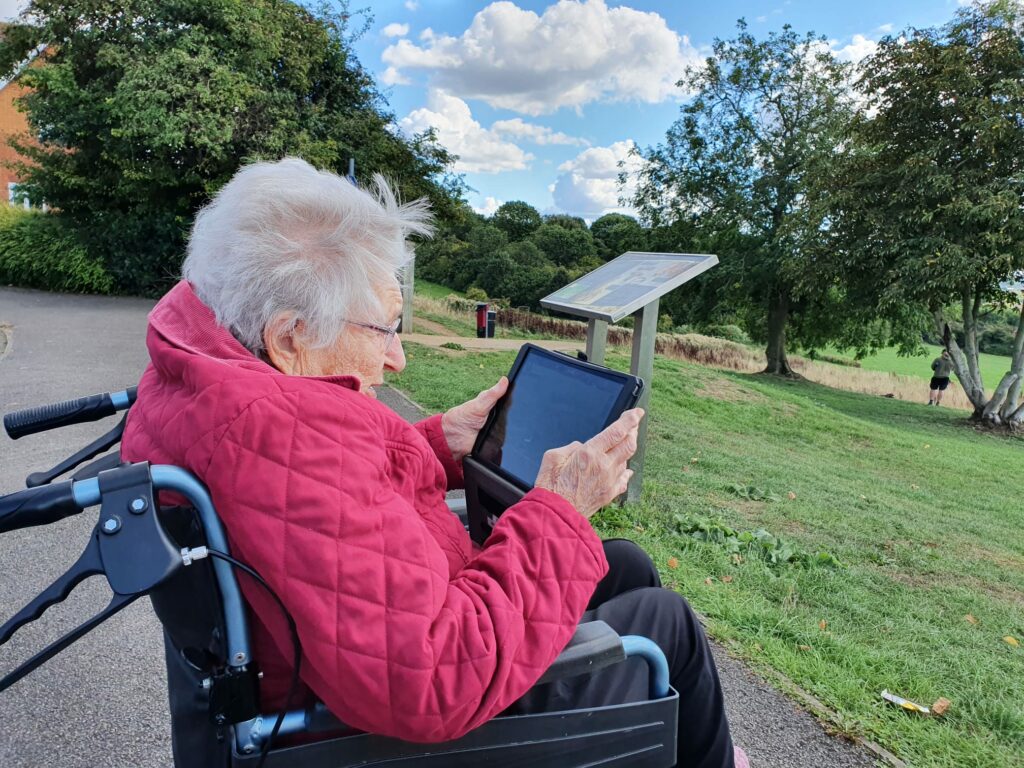
Dementia Care at Ridgeway Rise Care Home
Ridgeway Rise is a luxury, purpose-built care home in Swindon offering exceptional dementia care as well as residential care, nursing care, respite care and palliative care. We have a team of well-established and knowledgeable care experts who are on hand to ensure residents receive the highest level of support during the winter months. To combat the cold weather and improve the quality of life of our residents, we have several in-house facilities available around the clock, including a hair & beauty salon, cinema lounge, landscaped gardens and our varied activities programme.
We understand the importance of not only supporting residents living with dementia but also their loved ones. Our team is committed to providing awareness to as many people as possible, and we run free dementia training sessions for our local community and family members. In our team, we have some nationally recognised specialists and they are proud to share their knowledge with those around us. At our care home in Wiltshire, we also provide a free brunch to those living with dementia as well as their families and friends. It is currently held in our beautiful lounges but will become al fresco when the weather permits.
Check Out Our Radio Interview
Recently, our home manager, Bella, had an interview on Hit Radio discussing dementia residents and how they are impacted by the cold weather. She shares some crucial information regarding the increased risks associated with the winter months and ways in which care homes can adapt to support residents to the highest level. We are delighted to share our expertise with those around us and take pride in being one of Swindon's leading care homes.
This interview highlights just some of the ways that we can provide first-class dementia care. To find out more or experience what life at Ridgeway Rise is like, book a tour today! Our friendly and compassionate team would be delighted to show you around and find out how we can assist you or your loved one.

